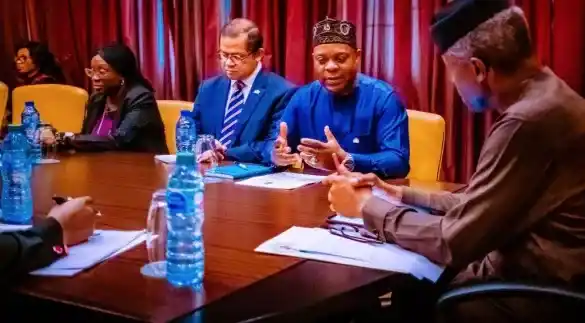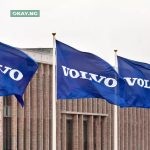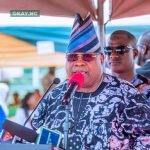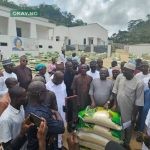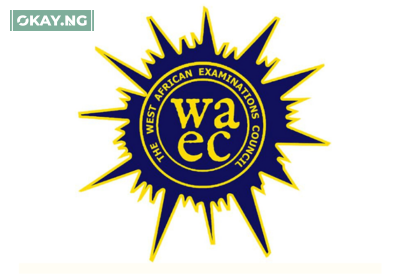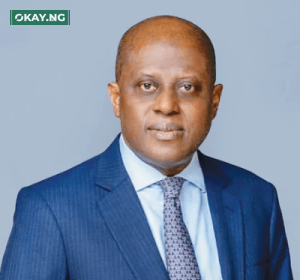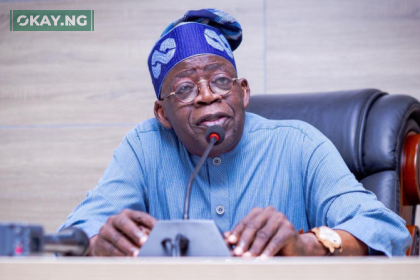At the Presidential Villa, the VP welcomes the Secretary-General of the D-8 Organization for Economic Cooperation.
The current global economic trend, climate change, and the crisis in Ukraine, according to vice president Yemi Osinbajo, all create chances for closer relations among developing economies, particularly in concentrating attention on trade and energy access for the benefit of the people.
Professor Osinbajo made the remarks on Tuesday in Abuja when he received in audience the Nigerian-born Secretary General of the D-8 Organization, Ambassador Isiaka Imam at the Presidential Villa, according to a statement by the Senior Special Assistant to the President on Media and Publicity, Laolu Akande.
Nigeria is a participant in the D-8, a group of eight developing nations that includes Bangladesh, Egypt, Indonesia, Iran, Malaysia, Pakistan, and Turkey.
According to the Vice-President, “This is a really significant time for member-countries to truly focus on the fundamental concerns – trade and energy.”
There is a need for more commercial engagements, he added, focusing on commerce in particular.
He noted that “what we all really need to do is look at how to use Nigeria as a point where you take off from the AfCTA and some type of entryway into the AfCTA,” saying that Nigeria “has huge opportunities for boosting commerce among the D-8 nations.”
“In the AfCTA, we believe Nigeria would be able to coordinate trade channels and opportunities. For instance, we are already fairly well-known throughout Africa for our financial services. That, in my opinion, is one of the many crucial areas that we should investigate.
Additionally, Professor Osinbajo asked the D-8 to look into ways to widen trade lanes, claiming that it was feasible from the “perspective of financial services.
He suggested that the D-8 Organization “create a payment system” in order to make that happen.
He stated, “This is one of the areas you might be looking at, especially involving Nigerian banks to see how they can function within the AfCTA and all our partners and member countries of the D-8.”
The VP asked the D-8 to support Nigeria’s demand for a just transition to net zero, stressing that “we are at a position where we are disputing over the role of gas in this whole transition to net zero.”
He questioned calls from the world’s “wealthier countries” for the Third World to “dispense with gas and use more renewables,” noting that Developing nations, such as Nigeria, were “fighting back and saying, we must continue to utilize gas.”
The vice president stated that “our advocacy in the area of energy access is a crucial aspect in the entire push towards net zero.”
Similar to that, he urged the D-8 to take up the issue and called for further expenditures in fossil fuels, particularly gas.
Social safety nets and wellness
While praising the Organization for its efforts in the areas of social protection and health, particularly in reaction to the COVID-19 epidemic, he questioned whether the D-8 should not have regarded it as a “great opportunity to bring countries together” to work out shared issues. He said, “Even local medicine manufacture, we have to enhance that capacity.
In his remarks, Ambassador Imam stated that a concerted effort is being made to revitalize commerce among member nations in line with the D-8’s new strategic plan, particularly by increasing trade volumes from $121 billion to a new aim of around $500 billion by 2030.
In an effort to increase trade by empowering MSMEs in member countries, he said plans were being made to establish a D-8 MSME Centre in Abuja.
He promised that, if realized, the Centre “will be a game-changer for members to enhance the capacity and training of MSMEs in branding and quality control.”
Punjul Nugraha, the organization’s director of external relations, accompanied the Secretary-General on the visit to the Presidential Villa.


